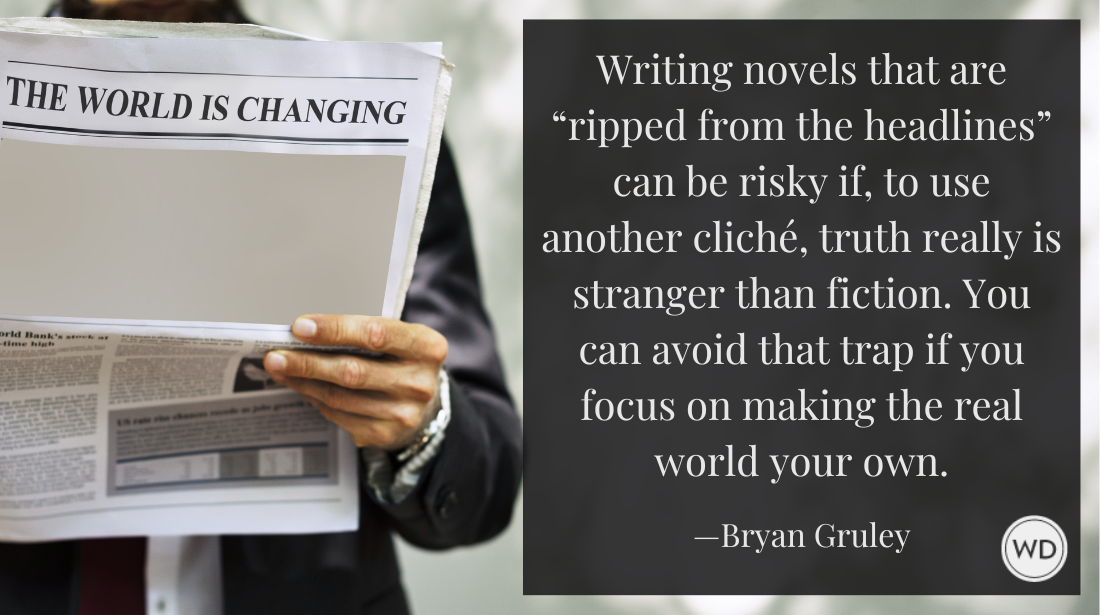Form the Perfect Critique Group
My colleague, Kelly Nickell, is the mastermind behind the titles we publish at Writer’s Digest Books (with the exception of the annual market listing guides—more on that here). On a…
My colleague, Kelly Nickell, is the mastermind behind the titles
we publish at Writer's Digest Books (with the exception of the annual
market listing guides—more on that here).
On a regular basis,
she writes a column explaining why we decided to publish a certain
book, or what makes it extraordinary or special. Here's her latest
pick.
—
When I first proposed The Writing & Critique Group Survival Guide by Becky Levine
more than a year ago, our sales team was a little skeptical. They loved
the outline and the sample content, and they thought Becky had a
terrific platform (which she does!).
But they wondered if we were focusing too much on a niche of a niche by
publishing a book geared toward writers interested in participating in
critique groups.
Luckily, we were given the green light on the project, and the result
is a phenomenal book perfect for anyone who
a) is looking for some
great instruction on revision and self-editing;
b) has only sort of,
kind of thought that maybe they should join a writing group; or
c) is
actively participating in a group and wishes to improve his or her
critiquing skills.
The lovely thing about this book is that, in addition to teaching a new
skill set (critiquing), it also teaches confidence, and that’s such an
important trait for writers. We are, after all, constantly putting
ourselves and our work out there for public scrutiny. Learning how to
interpret feedback, learning how to open yourself up to the criticism
and suggestions of others, learning how to self-edit like a pro—all of
these skills ultimately give you more confidence in the work you’re
showcasing as well as in your own ability to make that work even better.
The book shows you how to:
- give and receive constructive feedback regardless of genre
- find compatible critique partners
- develop your editor’s eye and analyze writing like a professional
- revise beyond the specific feedback you receive—taking suggestions and going deeper
- learn from the criticism others receive—what points might apply to your own work
- distill overly broad feedback to find meaning
- organize and prioritize all the feedback you get—which points to
tackle first and why (how one change can solve more than one issue) - construct organized and well thought-out critiques
For tips on selecting a writing critique group that's right for you, check out this excerpt from Chapter 1: Choosing the Kind of Group That’s Right for You.
You can also download many of worksheets from the book,
including ones designed to help you find/start a critique group, as
well as worksheets designed for critiquing fiction, nonfiction, or
books for young readers.
To learn more about Becky, check out her inspirational blog on writing at beckylevine.com and follow her on Twitter under @becky_levine.
Coming soon!
Becky just finished drafting a wonderful six-week course based on her book for WritersOnlineWorkshops.com. Look for Essentials of Effective Critiquing: Mastering the Art of Self- and Group-Critiquing to launch in late February.
Jane Friedman is a full-time entrepreneur (since 2014) and has 20 years of experience in the publishing industry. She is the co-founder of The Hot Sheet, the essential publishing industry newsletter for authors, and is the former publisher of Writer’s Digest. In addition to being a columnist with Publishers Weekly and a professor with The Great Courses, Jane maintains an award-winning blog for writers at JaneFriedman.com. Jane’s newest book is The Business of Being a Writer (University of Chicago Press, 2018).








